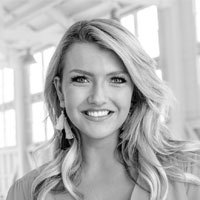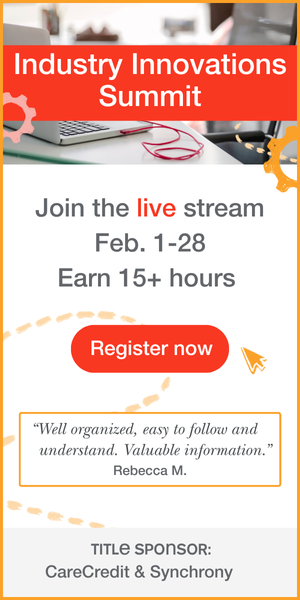Advocacy Champion Inspires Young People to Speak Up
AudiologyOnline: What does it mean to you be chosen as an Oticon Focus on People Award winner?

Emma Faye Rudkin: More than 15,000 people went online to read my story and cast votes for the Awards program. That means 15,000 people were directly impacted and educated about hearing loss and the benefit of hearing aids. Any type of outdated stereotypes or misconceptions people have about my hearing loss were highlighted and barriers broken through the media coverage of the Award that reached millions of people around the world. This story made front page news twice in my hometown. For the first time after years of advocacy and hard work, I believe people are finally understanding why standing up for deaf children and people is important.
AudiologyOnline: Why is advocacy – especially self-advocacy – important for people with hearing loss?
Emma Faye Rudkin: Advocacy is taking a stand knowing that it is worth a battle so that someone who comes after you does not have the same experience. If you don’t take a stand when something unjust or unfair is happening regarding hearing loss, then soon it will happen again to someone else. Self-advocacy is knowing your voice has value and it could change the whole trajectory of such things as equal access in school, in the workplace or even speaking up to an audiologist when programming isn’t quite right before leaving the clinic. Take a stand because starting off on the same equal playing field as a hearing peer is critical and then, do the hard work from there.
AudiologyOnline: When did you begin advocating for yourself?
Emma Faye Rudkin: I had gone through my entire school experience with no additional services or resources other than requesting front row seating and a privately owned FM system from grade to grade. I did not have a teacher of the deaf or any deaf support specialists offered to me in my small hometown. I was terrified to attend a massive university. My first on-campus meeting was with the university’s Disability Office. They wanted me to have captioning. I was adamant, I did not need it and I was fine without it. I refused to utilize any service until the deaf support director challenged me to try it for the first week of classes. That first week was a huge eye-opener for me. I had spent my entire life exhausted from lip-reading and listening fatigue, missing so much and being a below-average student. Once I had the same equal access as everybody else, I realized I was smart when I had believed for my whole life that I was stupid. I graduated Honors College with highest honors.
All deaf people need equal access in language, education and opportunities. Advocacy is being on the same level as everybody else. I spent so many years being behind and overworking my brain to understand, when I suddenly I had full access, I flourished. This experience turned me into a major advocate through my nonprofit Aid the Silent. Today, I do the same convincing to other young stubborn students who refuse hearing support services. It is hilarious and full-circle - I am going back to help the person I once was!
AudiologyOnline: What self-advocacy advice do you have for young people with hearing loss?
Emma Faye Rudkin: Do it in kindness. Use language that presents your advocacy as “a solution” and try to meet on a common ground. Do not come out all fire and problems lashed out in an email. It is better to meet in person and explain exactly what is needed. If you list all the problems and the inequality, people will probably not be as receptive. Lay out the issues you face, be clear on what solution will help – whether it is captioning or front row seating or an interpreter. If a professor or public place of business refuses to accommodate, then I would pull out the ADA laws regarding the situation and that mostly handles it. I always say “start in grace, end in stern feisty grace” when dealing with difficult people who just don’t get hearing loss and what you need.
AudiologyOnline: How does Aid the Silent, the non-profit organization you founded as a teen, support young people with hearing loss?
Emma Faye Rudkin: Aid the Silent’s purpose is to bridge the gap between the hearing world and the deaf and hard-of-hearing (HOH) community by providing resources for children through four programs. Deaf Resources provides resources such as hearing aids and accompanying equipment, assistive hearing devices, speech therapy, and American Sign Language (ASL) lessons. Deaf Education provides funding for early intervention programs for families, training for educators, classroom accommodations, teacher supplies and resources, and arts outreach program initiatives introducing theater, visual, music, etc. to the deaf community. Deaf Ministry provides funding for camper fees and accommodations needed for a deaf/HOH camper to attend a camp, such as assistive hearing devices (FM systems), temporary t-coiling, remote captioning, or an ASL interpreter. Deaf Ministry also provides funds to assist deaf/HOH children/teens with basic life necessities. Deaf Awareness educates the community to promote inclusion and acceptance.
Aid the Silent throws large community events that are completely deaf accessible - for spoken language and those who communicate only by ASL - showing businesses & organizations how to be truly accessible. These events bring awareness to the community as well as exposing others to a different culture, language and disability. We have been able to accomplish so much for young people with hearing loss.
AudiologyOnline: Where can people find out more about Aid the Silent?
Emma Faye Rudkin: We have an amazing team updating our website, social media posts and we host lots of events for the deaf and hearing to bridge together for a common cause of helping children and teenagers with hearing loss. Connect with us social media through my own platform of @emmafayerudkin and our page @aidthesilent on both Facebook and Instagram. During our 5K race, become a virtual runner and purchase our cool merchandise from our website. Connect with us at aidthesilent.com


